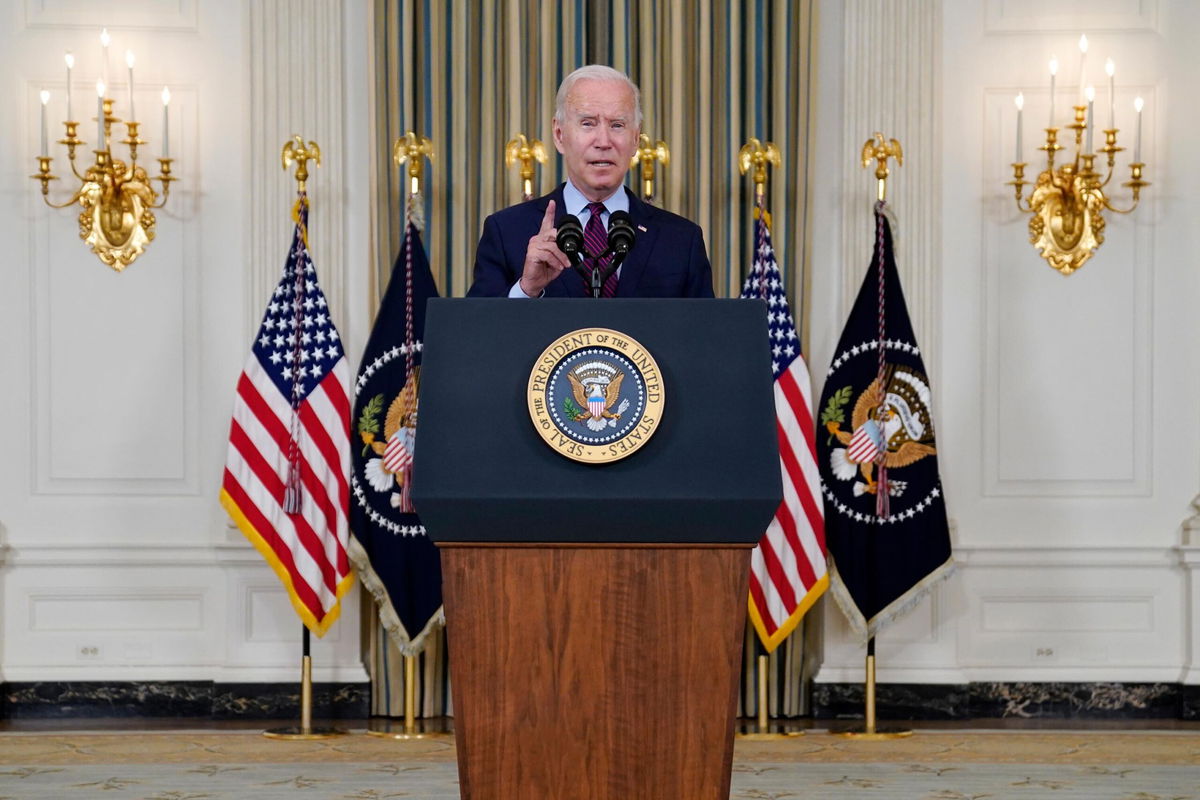Biden becomes first president to issue proclamation marking Indigenous Peoples’ Day

President Joe Biden delivers remarks on the debt ceiling during an event in the State Dining Room of the White House
By Donald Judd
President Joe Biden issued a proclamation commemorating Indigenous Peoples’ Day on Friday, becoming the first US president to do so, the White House said.
“The contributions that Indigenous peoples have made throughout history — in public service, entrepreneurship, scholarship, the arts, and countless other fields — are integral to our Nation, our culture, and our society,” Biden wrote in the proclamation Friday. “Today, we acknowledge the significant sacrifices made by Native peoples to this country — and recognize their many ongoing contributions to our Nation.”
Biden also marked a change of course from previous administrations in his proclamation marking Columbus Day, which honors the explorer Christopher Columbus. In that proclamation, the President acknowledged the death and destruction wrought on native communities after Columbus journeyed to North America in the late 1500s, ushering in an age of European exploration of the Western Hemisphere.
“Today, we also acknowledge the painful history of wrongs and atrocities that many European explorers inflicted on Tribal Nations and Indigenous communities. It is a measure of our greatness as a Nation that we do not seek to bury these shameful episodes of our past — that we face them honestly, we bring them to the light, and we do all we can to address them,” Biden wrote.
More than 100 cities — including Seattle, Los Angeles, Denver, Phoenix, San Francisco — and a number of states — including Minnesota, Alaska, Vermont and Oregon — have replaced Columbus Day with Indigenous Peoples’ Day, choosing instead to recognize the native populations that were displaced and decimated after Columbus and other European explorers reached the continent. Berkeley, California, was the first city to adopt Indigenous Peoples’ Day, in 1992.
White House press secretary Jen Psaki told reporters that Friday’s announcement didn’t entail ending Columbus Day as a federal holiday.
“Well, today is both Columbus Day, as of now … as well as Indigenous Peoples’ Day,” Psaki said. “I’m not aware of any discussion of ending that either, ending the prior federal holiday at this point, but I know that recognizing today as Indigenous Peoples’ Day is something that the President felt strongly about personally, he’s happy to be the first president to celebrate and to make it, the history of moving forward.”
As candidate, Biden recognized Indigenous Peoples’ Day, drawing the ire of former President Donald Trump.
“He wants to change the name of Columbus Day to Indigenous Peoples’ Day,” Trump told supporters in Michigan during a campaign rally last October. “So, he wants to change it to Indigenous Peoples’ Day. Uh, not as long as I’m president.”
The-CNN-Wire
™ & © 2021 Cable News Network, Inc., a WarnerMedia Company. All rights reserved.